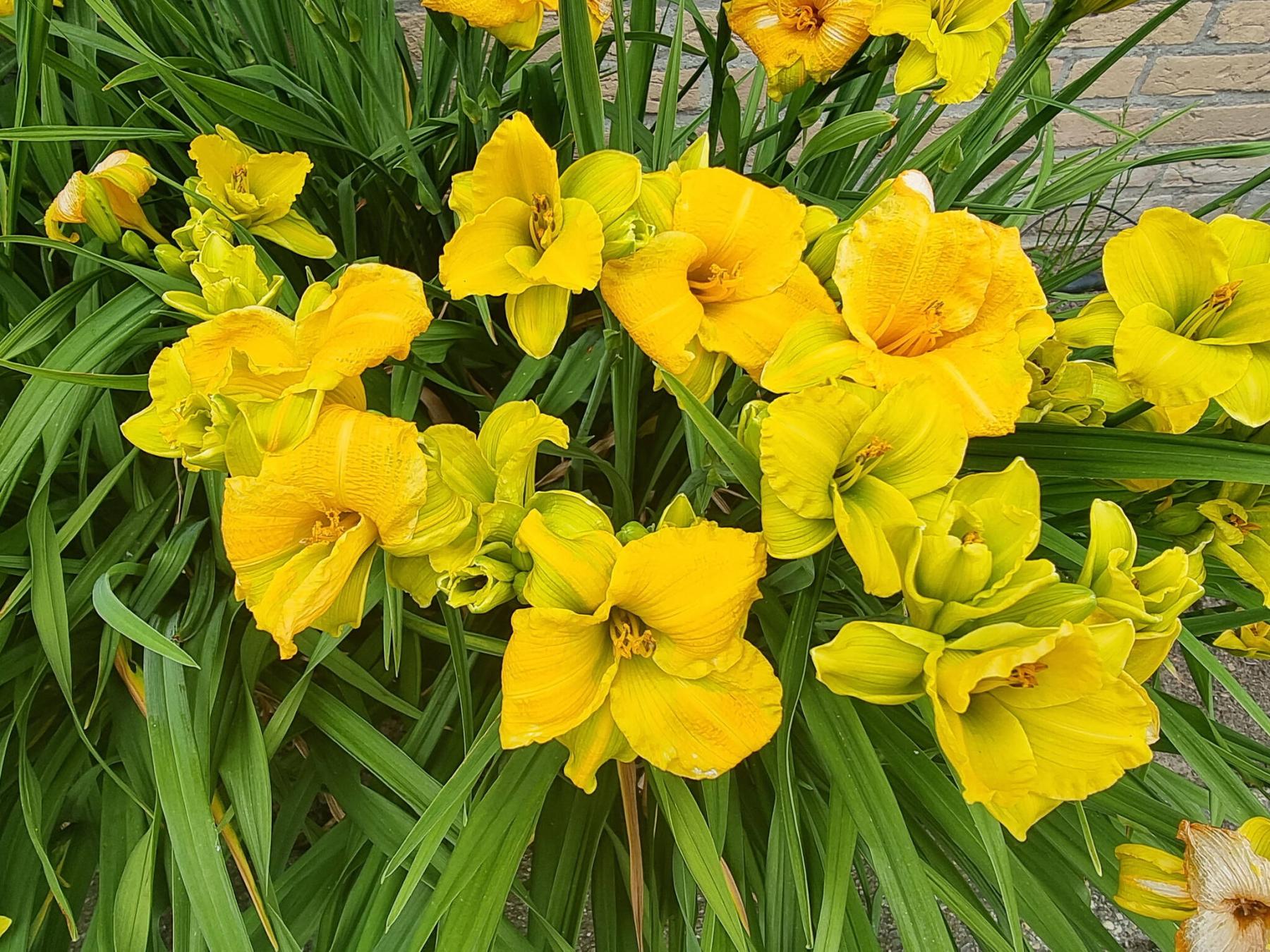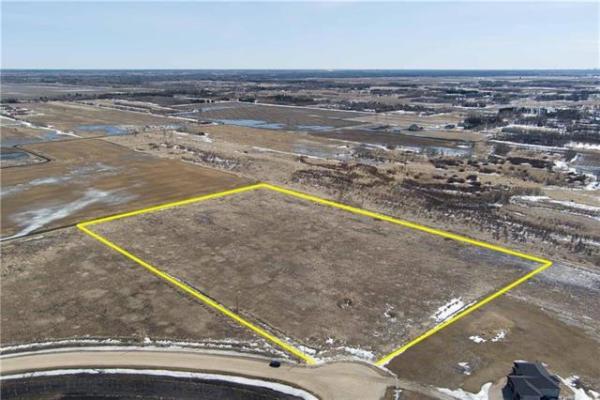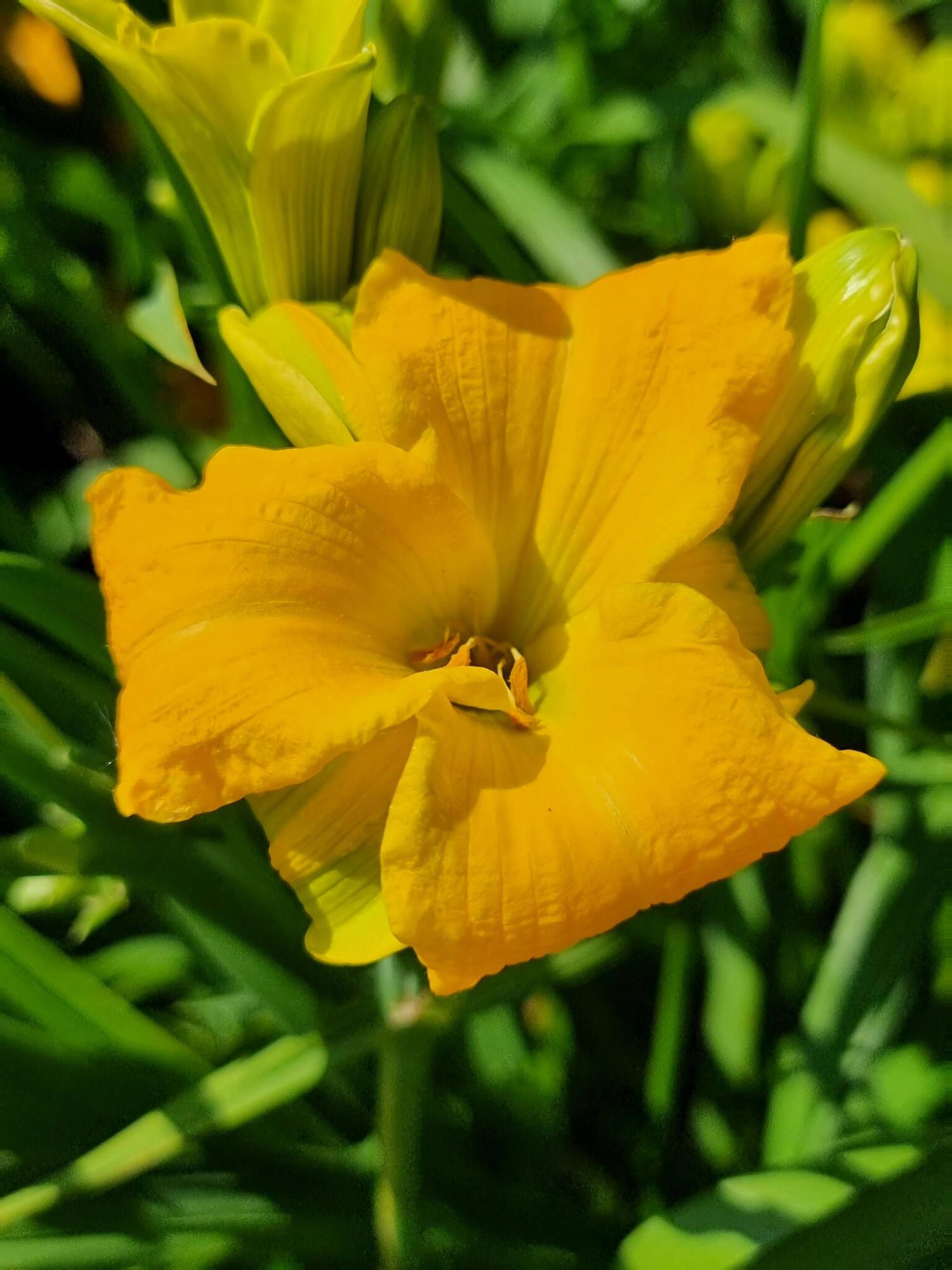
ThinkPlants photo
The flowers of See You Tomorrow daylily open green and transition to yellow/orange-yellow as they mature.
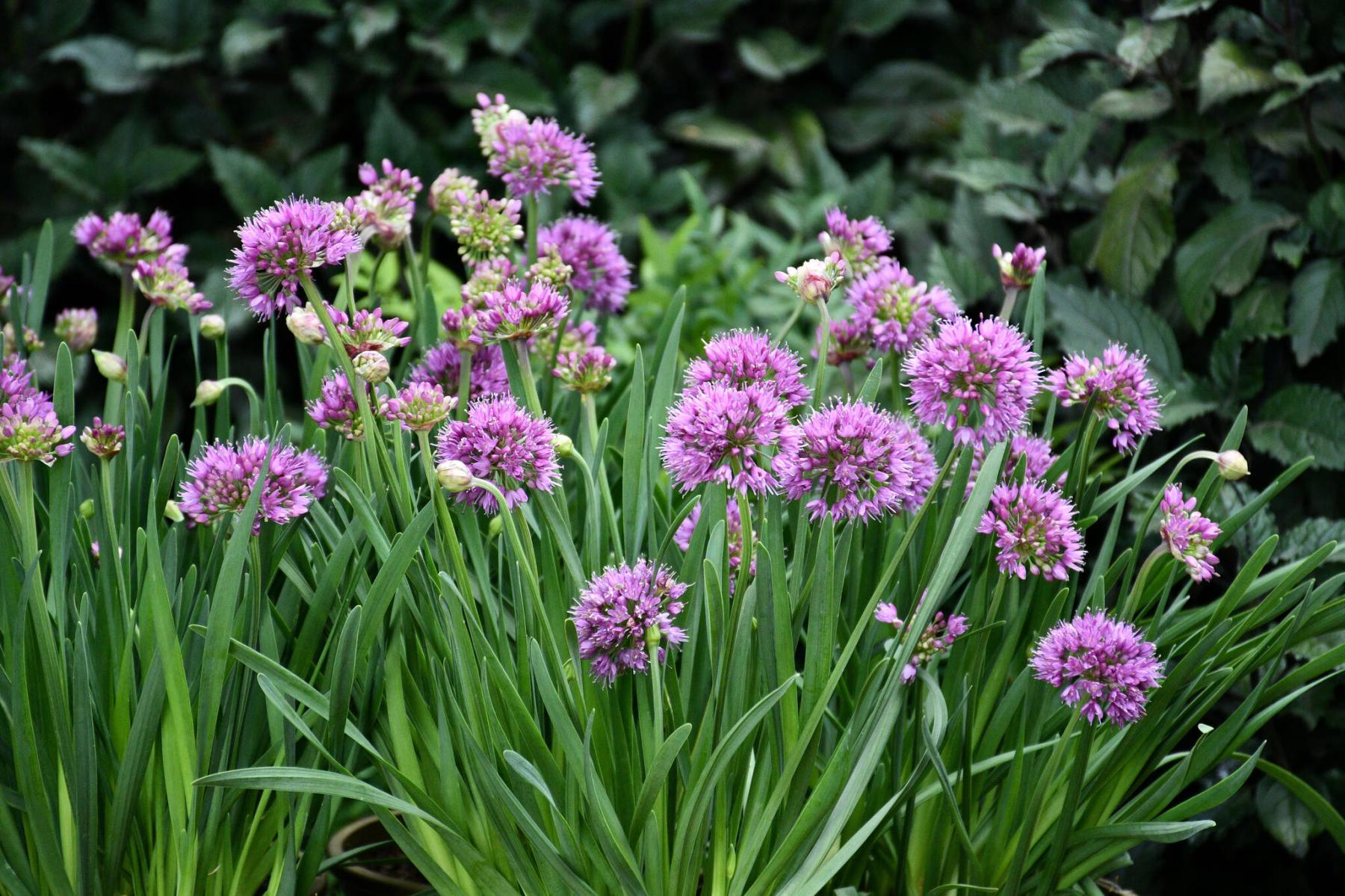
ThinkPlants photo
New Allium Cobalt Millenium has blue-green foliage and is a blue sport of the popular Allium Millenium.
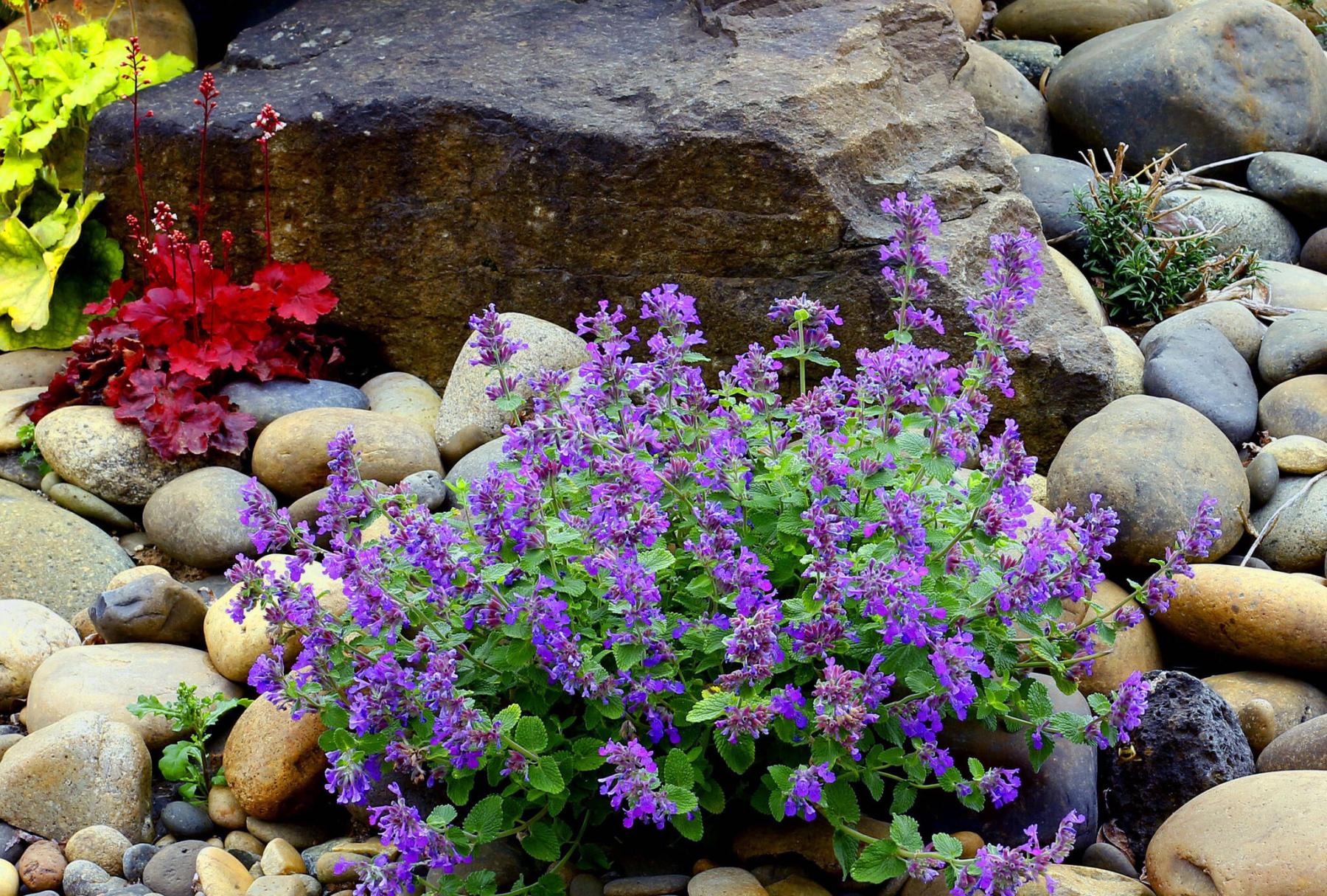
ThinkPlants photo
A new ThinkPlants trial garden at Jeffries Nurseries will evaluate the cold-hardiness of plants such as Nepeta Nova Blue, a sweetly fragrant catmint.
In the plant world, the term “game-changer” gets thrown around a lot. It’s true that many plant introductions offer consumers unique and novel traits such as unusual patterns or colouring, exceptional bloom performance or a more compact habit. Plant breeders are also increasingly focused on developing improved disease resistance.
But how often does a new plant come along that exhibits a trait entirely different from anything seen before in its genus? Introducing Hemerocallis See You Tomorrow daylily, the world’s first daylily to have individual flowers that last — wait for it — four to six days instead of the typical life span of just one day for each flower.
Apparently, not even the plant breeder, Michel van ’t Hul, could believe his eyes when, after 20 years of breeding work, he observed that each daylily flower not only stayed in bloom for almost seven days but transitioned in colour as well. The blooms on See You Tomorrow daylily age from green to yellow to orange-yellow as they mature. The approximate size of this perennial is 45 centimetres tall and wide. The slender foliage and yellow bloom colour is reminiscent of Stella D’Oro.
It would be an understatement to say See You Tomorrow daylily has created a buzz among growers in North America. In Europe, it will be showcased at the RHS Chelsea Flower Show in May. My first question, upon learning of this amazing new plant introduction was, will we see this new perennial here in Manitoba this spring? Yes, but it will be available only in limited quantities at a select number of garden centres.
The next obvious question must be: what is the hardiness rating for See You Tomorrow daylily? Currently the classification is Zone 4. Although the See You Tomorrow daylily has been extensively evaluated in trial gardens in North America, it has not been trialled in a Zone 3 climate. That leads me to the next game-changer I want to tell you about.
Jeffries Nurseries is partnering with ThinkPlants to create a new trial garden at its Portage la Prairie location. ThinkPlants is a North American company which represents plant breeders and other horticultural experts from around the world and helps them market their plants, one of which happens to be the new See You Tomorrow daylily.
Last week I spoke with Anik Graves, program manager for ThinkPlants, who was at her home in northern Ontario.
“We are really focused on perennials,” she said. “We have been working for a couple of years to try to get a Zone 3 trial garden. Our breeders are usually located in more tropical climates or mild climates like Holland or Israel or California so often they don’t test down to Zone 4 or Zone 3 before their plants are launched to the market. ThinkPlants has taken the initiative to see what really is hardy to Canada and appeals to the Prairie provinces.”
It was at this point in the conversation that I could not help but think of a prime example — Karl Foerster grass — which turned out to have far greater cold hardiness than its initial classification after Prairie gardeners had a chance to trial it in their own gardens.
When Calamagrostis Karl Foerster feather reed grass was named 2001 Perennial of the Year by the Perennial Plant Association, it was classified as hardy to Zone 5. As one of the most popular grasses grown today in Manitoba gardens, Karl Foerster has proven its hardiness in our Zone 3B climate.
ThinkPlants represents many new plant varieties. “We are really excited to test some of our plants at Jeffries. Mostly we have selected varieties that are (currently) Zone 4 and Zone 5 just to get a good start on the testing process,” said Graves.
Zone testing takes three years at minimum. “We want to make sure the plants are living through three winters. They don’t get the Zone 3 rating unless they have lived through multiple Zone 3 winters — not just one mild winter.”
At the new trial garden at Jeffries Nurseries, plants will be evaluated in the toughest of conditions — an open field exposed to all the elements.
“ThinkPlants represents a very large group of breeders,” said Graves, “so by developing this relationship with Jeffries, we hope to get a lot more plant varieties evaluated.”
Consumers can sometimes be heard complaining that plant selection is unexciting, and they would like something different.
“That’s exactly why I’ve been pushing for this trial site,” says Graves, “because the Canadian selection is kind of boring. Unless you’re living in Vancouver or southern Ontario where there are higher-density greenhouses and more sources for plants, the selection we get at the garden centre every year is mostly the same.”
No matter where you garden, you won’t find another daylily like See You Tomorrow daylily. “It’s one of the few times that we can really call something a breakthrough in breeding,” says Graves. “It’s something that nobody has ever seen before.”
Once this new daylily has undergone extensive trial and evaluation at Jeffries Nurseries, we’ll learn if it is reliably hardy to our Zone 3B climate. In the meantime, there is a limited opportunity this spring to trial this new variety in your home garden. A layer of mulch will provide added protection over the winter.
Another new plant that should be available to consumers this spring is Allium Cobalt Millenium. A 2024 introduction, its breeder is Plants Management Australia which ThinkPlants also represents. The hardiness rating is listed as Zone 3 or Zone 4 depending on the supplier. Allium Cobalt Millenium has large pink-purple blooms and distinctive blue-green foliage. It is a blue sport of the hugely popular Allium Millenium which was Perennial Plant of the Year in 2018.
“What’s exciting about Allium Cobalt Millenium is that we have noticed in trial gardens that it is actually outperforming Allium Millenium in some cases,” said Graves. “We are seeing more flowers and slightly more vigorous performance — overall, it just seems like a slight improvement over the classic. We are seeing really good consumer feedback. Monrovia is really impressed with how it does in production. They’re seeing it bloom for a very long time in their landscape trials.”
One of Graves’ favourite plant introductions is Nepeta Nova Blue catmint which has blooms that are bright purple-lavender. The breeder is Terra Nova Nurseries which introduced it in 2024. “It’s a nepeta that has fragrant foliage that actually smells good — more like lemon balm with a sweet, citrus scent instead of a litter box. It’s a little earlier to flower than other varieties — about a week to 10 days earlier,” said Graves.
Nepeta Nova Blue, however, is listed as hardy to Zone 5. It has not been evaluated in a Zone 3 climate. That’s the problem the new ThinkPlants trial garden at Jeffries Nurseries wants to resolve. “We’ve got hundreds of plants that are listed as Zone 5 hardy and are hoping to focus on varieties that we think should be listed as Zone 3 and get them properly tested,” said Graves.
Prairie gardeners stand to benefit.
colleenizacharias@gmail.com

